Dear WinkWorld Readers,
There I was, minding my own business at 3 am, as I happily read during my “Winksomnia.” Before going back to bed, I decided to take a quick look at Facebook, and that is when I discovered a lively discussion between two of my friends, Sam and Donna, on a thread I had shared re: banned books. Sam questioned the use of the word, banned, as he could buy them in any book store or order a copy at any moment. Donna replied that she thought it referred to books which are banned in school libraries.
Was it a dream?
I did not give this much thought until the next night when that Facebook discussion popped into my head. I thought it had been a dream, as I know these two people do not know each other. I checked my Facebook thread, and sure enough, there they were. I wrote back to Sam and Donna.*
Sam and Donna, how much do I LOVE this discussion between two of my friends, who I am sure, do not know each other. You are both my friends from totally different contexts! You two have very different lived-experiences and distinct perspectives. By the magic of social media, here you are having a meaningful discussion about something which is very important.Sam, yes, banned does mean that some books are banned in some school libraries. It also refers to isolated school districts where a parent has asked (a.k.a., insisted) that a specific book be “banned” from a class or library. I have studied this a bit, and it often is a parent who has not read the book, but has a political motive.I suspect that the large book stores and small independent book stores have researched each “banned” book before setting it out on that table.Sam, the bottom line for me is that I am happy that each of the three of us can access any book, anytime.However, that is simply not true for some students–particularly students of poverty. Libraries and schools can often be their only avenue to free-range reading. If a book is denied from even one student, I am comfortable calling it a “banned” book.The research question is starting to form in my head: What criteria does Book Store A use to label a book “banned?”Big Hugs to both of you. Thanks for thinking with me.
I found out recently that the superintendent from a school banned “Where the Crawdads Sing.” No explanation.
My First Experience
I remember vividly my first experience with a book banning. It took place in the 70s, when Dawn was already an avid reader in 3rd grade. She walked into the school library and wanted to read three books, which were placed on a shelf for 5th grade readers. The school librarian would not allow her to check out any book, which was not on the 3rd grade shelf. The librarian’s rationale was that Dawn would have no books to read when she got to 5th grade.
Later in the hour, Dawn grabbed the three books from the 5th grade shelf and shoved them up under the front of her t-shirt. Busted! The librarian saw her and gave her after-school detention, which meant Bo and I also had after-school detention, as I was her transportation back to the ranch that night.
That is the moment when I first stared to think about banning books. Who does it? Why? And, what is a 3rd-grade reading level? Who decides?
Another experience came when Bo was in 5th or 6th grade and went from reading about motor bikes to reading Stephen King novels. I remember a fleeting thought that Bo might not understand a King novel, and I am sure he didn’t, but he was captivated.
As a classroom teacher and professor, I have heard so many unsolicited examples of books being banned in various places.
WinkWorld Readers, I look forward to hearing your experiences with banned books.
*All names are fictional, but the people are very real, and they are very real friends of mine from different chapters of my long life.
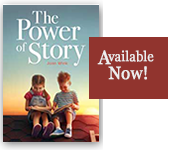
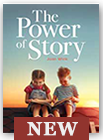
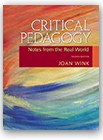
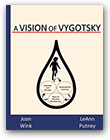

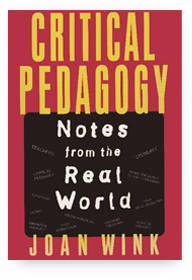


at 10:29 am
Greetings from Greece, where I’m traveling with a friend who is working on an academic project (refugees in Greece). I’d love to tell you about the work of a teacher-librarian who directs 16 libraries and how we think about collection development in an age of “book banning.” I can suggest a few volumes of the AASL’s Knowledge Quest, too. Let me know if you’d like more reading gif your Winksomnia periods!
at 7:15 pm
When I was young my mom would take me & my siblings to a bookmobile so we could check out books. I remember the librarian telling my mom that we were picking books that were too old for us. She would just laugh & say “Whatever books they want is fine with me as long as they read”.
at 11:13 pm
Love this story! Thanks.